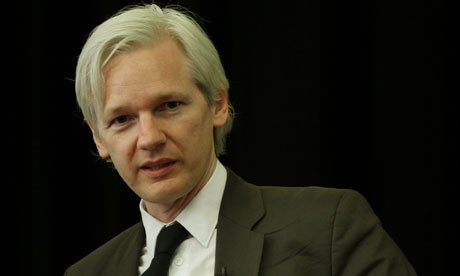UK court rules Assange be extradited to Sweden
 0 Comment(s)
0 Comment(s) Print
Print E-mail China.org.cn, May 30, 2012
E-mail China.org.cn, May 30, 2012
The appeal by Julian Assange, founder of Wikileaks, is dismissed by Britain's Supreme Court on Wednesday,?paving the way for his extradition to Sweden over alleged sex crimes.
 |
|
File photo of Wikileaks founder?Julian Assange |
Assange's defense, in his bid to Britain's highest court, was that the Swedish prosecutors are not a proper group to issue an European Arrest Warrant (EAW) under the multilateral agreements regulating their use.
The senior judges of the Supreme Court ruled five against two that the Swedish prosecutors could issue EAWs, and that Assange should be extradited.
At no point in the legal proceedings in Britain has Assange been examined on whether he committed the crimes alleged against him, which he denies. His appeals have always been procedural.
Assange, who for the first time in his long battle through the courts failed to appear because he was caught in traffic, now has 14 days in which to appeal for the case to be reopened by the Supreme Court on a technicality over submission of evidence used in the judgment.
This is a highly unusual move by the Supreme Court, and could allow Assange to continue his legal battle in England.
Should that fail, Assange will then have an option to continue his battle in the European courts. His supporters told journalists outside the court this was a course he would take, but a member of his legal team was reported as saying that it was too early to commit to such a course.
The Swedish authorities want to question Assange over allegation of rape raised by one woman, and of sexual coercion by a second woman, which reportedly happened on his visit to the Scandinavian country in 2010.
The 40-year-old Australian who founded the Wikileaks website has embarrassed several governments, including the U.S. authorities, by publishing millions of secret diplomatic cables on the Internet.
Since his arrest in Britain in December 2010, Assange has been fighting a lengthy legal battle against extradition, fearing that his return to Sweden would lead eventually to his extradition to the United States to face the anger of the authorities over his publishing of the diplomatic cables.





